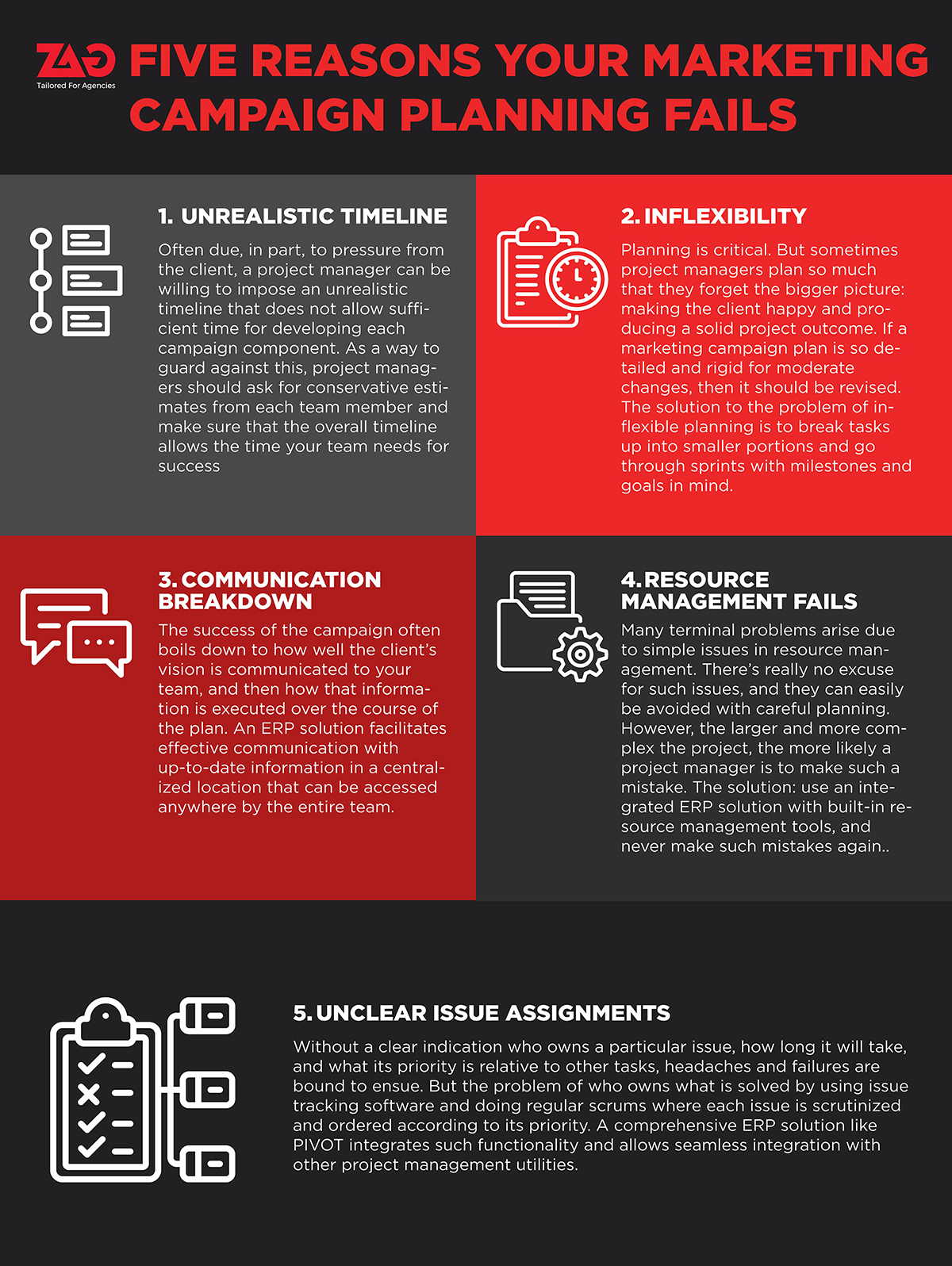
Five Reasons Your Marketing Campaign Planning Fails
Marketing campaigns involve a highly complex set of components working together to produce a desired outcome: a successful campaign. From designers to project managers to executives to clients, each role is important. And knowing how to plan the workflow for such a project is just as crucial. Here we’ll take a look at five common mistakes that occur during the planning of marketing campaigns and how to avoid such issues.
- Unrealistic timeline. One of the biggest pitfalls in marketing campaign planning can occur when project managers are simply too eager to deliver a product early. Often due, in part, to pressure from the client, a project manager can be willing to impose a timeline that does not allow sufficient time for developing each campaign component. As a way to guard against this, project managers should ask for conservative estimates from each team member and make sure that the overall timeline allows the time your team needs for success.
- Inflexibility. Planning is critical. But sometimes project managers plan so much, and get so into the weeds, that they forget the bigger picture: making the client happy and producing a solid project outcome. If a marketing campaign plan becomes so detailed and rigid that it cannot account for at least moderate changes, then it should be revised. The solution to the problem of inflexible planning is to be more Agile and less top down in your approach. Break tasks up into smaller portions and go through sprints with milestones and goals in mind.
- Communication breakdown. A crucial problem area for marketing campaign planning is communication. The success of the campaign often boils down to how well the client’s vision is communicated to your team, and then how that information is executed over the course of the plan. An effective Enterprise Resource Planning (ERP) solution facilitates effective communication with up-to-date information in a centralized location that can be accessed anywhere by the entire team
- Resource management fails. Many terminal problems arise due to simple issues in resource management. For instance, a project manager schedules a major client deliverable—with a key component from the designer—on the same week as the designer is scheduled to go on vacation. There’s really no excuse for such conflicts, and they can easily be avoided with careful planning. However, the larger and more complex the project, the more likely a project manager is to make such a mistake. The solution: use an integrated ERP solution with built-in resource management tools, and never make such mistakes again.
- Unclear issue assignments. Without a clear indication who owns a particular issue, how long it will take, and what its priority is relative to other tasks, headaches and failures are bound to ensue. But the problem of who owns what is solved by using issue tracking software and doing regular scrums where each issue is scrutinized and ordered according to its priority. A comprehensive ERP solution like PIVOT integrates such functionality and allows seamless integration with other project management utilities.
